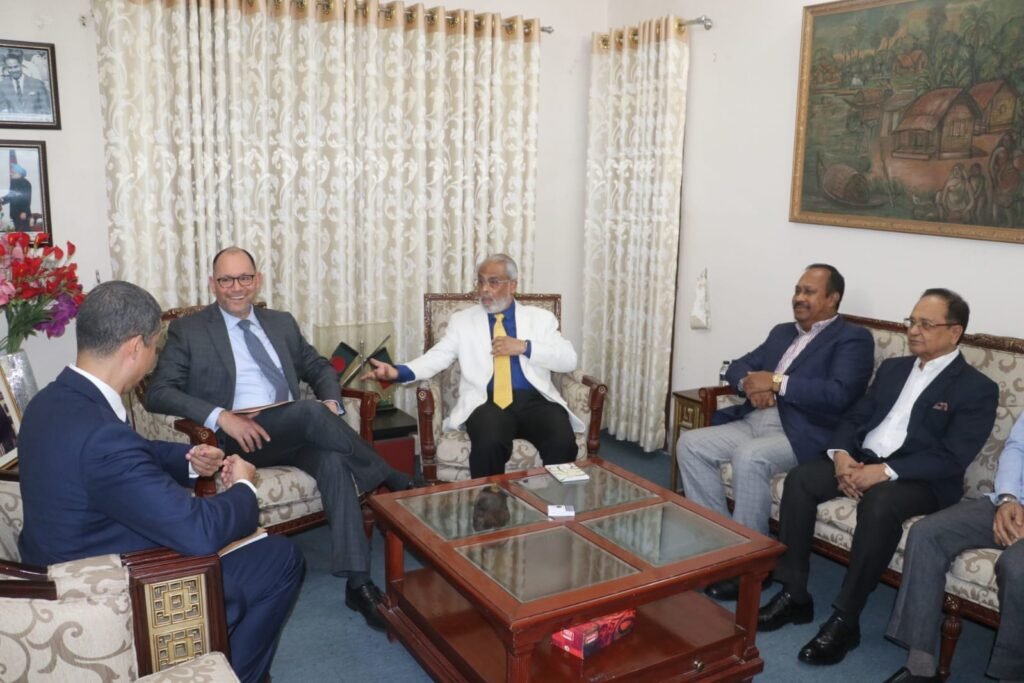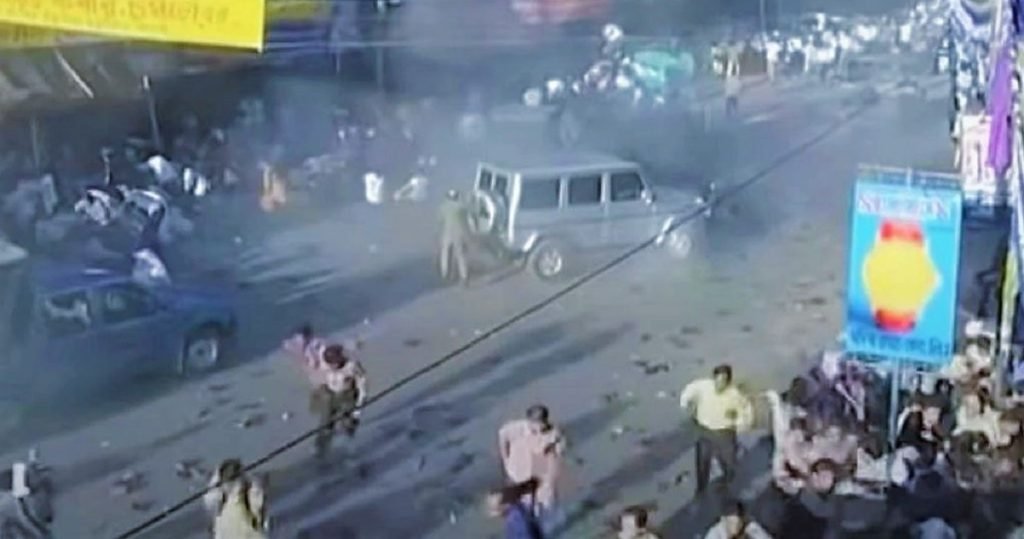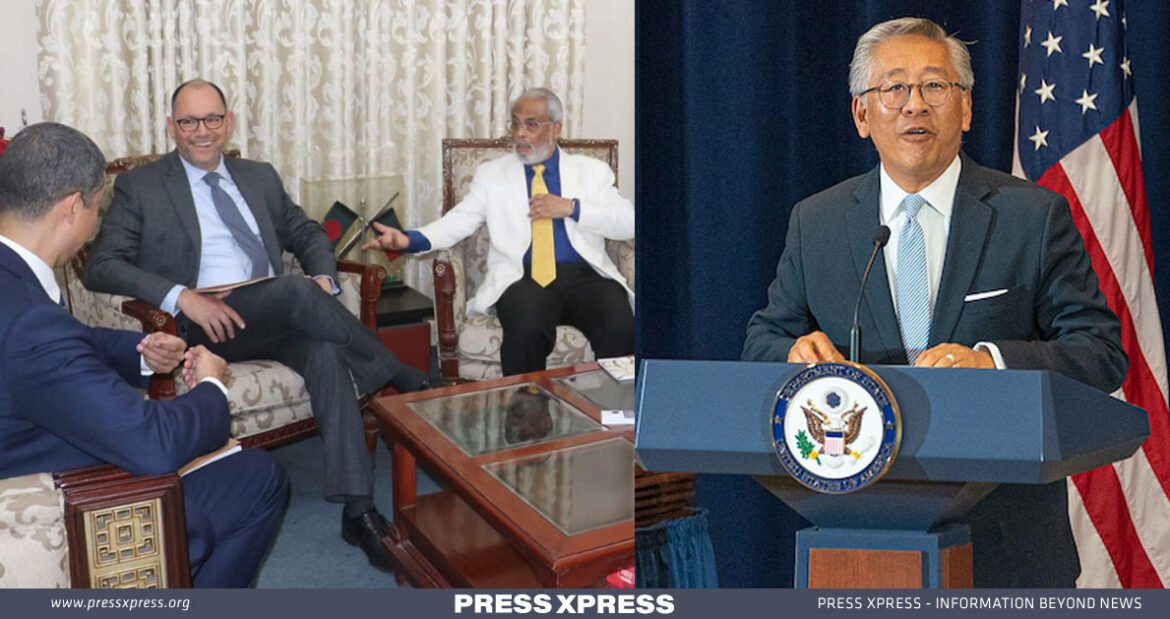On 13 November 2023, Bangladesh media widely reported that US Assistant Secretary at the Bureau of South and Central Asian Affairs Donald Lu had sent a letter to all three major political parties urging for a non-negotiated dialogue amongst the parties. Earlier that day, US Ambassador Peter Haas sought meetings with senior representatives from the three major political parties to emphasize the United States’ stance on the upcoming elections. Ambassador Haas also called for no-preconditioned dialogue after Bangladesh Nationalist Party’s violence-marred rally on 28th October.
You Can Also Read: India affirms Bangladesh’s election “internal matter” in US talks
While BNP Senior Joint Secretary General Ruhul Kabir Rizvi and Jatiya Party Secretary General Mujibul Haque confirmed receiving letters, Awami League’s Office Secretary Biplab Barua said they had not received such a letter. Ironically, the Awami League and Jatiya Party were open to having inter-party discussions beforehand, it was the BNP who took a harder stance against it. Now Awami League has also changed its stance since the violence, arson and murder of a Policeman and its activists in the last two weeks.

The offer of dialogue is noble in nature but many political analysts in Bangladesh are also curious about the timing and motive of such an initiative led by the US. Ambassador Haas who was particularly chummy with BNP leadership before the 28th October Rally, never referred to a political dialogue before BNP-led violence erupted. Also, Awami League’s past experience with BNP’s destructive nature of politics, particularly it’s acting Chairperson Tarique Zia’s criminal record and terrorism ties needs to be examined for the growing skepticism.
You Can Also Read: ELECTION NEGOTIATION: WHY IS AWAMI LEAGUE TOUGH ON BNP?
Convicted Tarique Zia’s leadership a major bone of contention
Tarique Zia, BNP’s acting chairperson, is a controversial figure to say the very least. He created a shadow center of government when his mother Khaleda Zia was the country’s Prime Minister from 2001 to 2006. He has been convicted into prison terms for multiple cases ranging from terrorism and conspiracy to then opposition leader Sheikh Hasina to corruption charges.
On August 21, 2004, a deadly grenade attack occurred during a rally in front of the Awami League’s central office on Bangabandhu Avenue in Dhaka, resulting in the deaths of 24 people and injuries to over 300 others. Despite surviving the assassination attempt, Sheikh Hasina suffered hearing damage. Mahbubur Rahman, who was Sheikh Hasina’s bodyguard, and Ivy Rahman, the Awami League Women’s Affairs Secretary, were among the casualties of the 2004 grenade attack. Ivy Rahman passed away three days later from her injuries. The verdict in the case led to the conviction of 19 individuals, including BNP Acting Chairman Tarique Rahman, who was sentenced to life imprisonment.

Confession of a hanged man
In early 2000s Bangladesh was gripped by terrorism mostly instigated by Harkatul Jihad (Huji). In 2011, Mufti Hannan, the leader of Huji, made a confessional statement implicating Tarique Rahman directly to the planning of the grenade attack. According to the statement, Mufti Hannan asserted that the attack’s objective was to eliminate the top leadership of the Awami League, including Sheikh Hasina. He also claimed that BNP leader Tarique Rahman, along with Jamaat leader Ali Ahsan Mohammad Mujahid, and the then Home Minister Lutfuzzaman Babor, assured them of government support.
According to a report published at Daily Star in 2011, Hannan said, “The attack was planned in meetings held at the Hawa Bhaban (Tarique’s Office). The meetings were held in the presence of some then BNP ministers and businessmen close to BNP and Jamaat-e-Islami top brass.”
While BNP’s General Secretary and other leaders have dismissed them as political vendetta but confession from a man on the death penalty is hard to ignore as he has nothing to lose or gain from a false or coerced statement.
From Pariah to Messiah?
On 3 November 2008, a leaked US Embassy cable said, “His (Tarique) theft of millions of dollars in public money has undermined political stability in this moderate, Muslim-majority nation and subverted US attempts to foster a stable democratic government, a key objective in this strategically important region. He is guilty of egregious political corruption that has had a serious adverse effect on US national interests”
It is noteworthy, that Tarique was not the top guy of BNP at that time. Now the question can arise what happened in the last 15 years that the US State Department and US Embassy have changed their tune to promote a dialogue with a party that is led by a person “guilty of egregious political corruption”? Or why Prime Minister Sheikh Hasina be morally obliged to have talks with a person who tried to kill her?
Especially after Awami League and the government’s continuous promise and attempt to held a free, fair and participatory election, the BNP has again chosen violence when given space. Donald Lu’s ‘noble attempt’ thus might be too little, too late.


